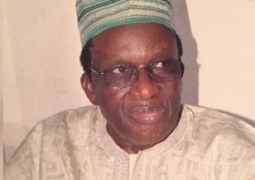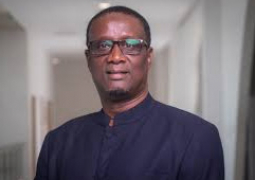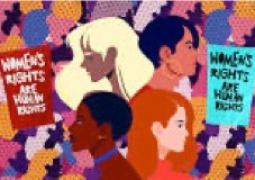Privilege blinds and that's why some Gambian urban dwellers are blinded with the hardship and marginalization that rural dwellers have been going through, and the daily huddles to overtake to ensure that we survive. In fact, many people hardly notice that there exists a difference between living and surviving, and if you don’t know, rural Gambians are really surviving!
I don't write to instigate division amongst Gambian citizens; I write because I believe the fundamental bonds that should bind us, as citizens, should be one that ensures access to equal opportunities in every aspect of life, one that makes us each other’s keeper and one that gets us a fair share of the national cake. Nothing more, nothing less. Is that too much a thing to ask?
Although each time I write, someone is hurt but my conscience always tells me to be the realest, truest version of myself because the most interesting thing about truth is the fact that it doesn’t care about emotions and that’s why I don't write to please anyone but to pen down my perspectives no matter how other people perceive them as The Gambian Constitution has unbiasedly guaranteed me the freedom of expression.
Of recent, there have been lot of talks on the government’s projects in rural Gambia and some people branded them as “Not A Priority Projects” and others coding them as “Misplaced Priorities”. What! Are those making these comments for real? Oh no! I almost forgot that PRIVILEGE BLINDS and that the privileges they’re enjoying in the urban centres are blinding them of the unlimited hardships people have to endure on a daily basis in the rural areas.
Far too long, access to opportunities have not been even in The Gambia and infrastructural development have only been centered around the urban centres leaving rural dwellers with no option but to use primitive tools on the farms to put food in the bowl, walk several kilometres to fetch clean drinking water, sit on mats in classrooms to get education, ride on donkey carts to transport women in labour to a health post under treble road conditions and paddle canoes to cross from one bank of River Gambia to the other to visit family members.
For as far as history narrates, rural Gambians have been paying taxes like any other Gambians expecting improvements on access to healthcare, education, infrastructural development, but that 60% hardly comes back. Since The Gambia gained independence in 1965, election after election, politicians have always solicited the votes of rural Gambians with the promises of improving the living standards, and time and time again, after been voted into office, the conditions got worst until recently when the narrative is beginning to change. Why the complaints?
If those words are anything to go by, I would really be disappointed in those saying that the roads and bridges built in rural Gambia are a misplaced priority and that the government's concentration should have been directed to other areas of development. Really? I haven’t thought that some people would be so egocentric that they would say what’s good for the goose is not good for the gander. Why were there no complaints when roads and bridges were built in the urban centres? Are we not also citizens of The Gambia?
Although we have the right to vent our frustrations about situations, it's equally important to rationalize the situations and strive to respect our differences. If rural Gambians have been enduring all these hardships for as far as time tells, it shouldn’t be a problem to direct certain infrastructural development projects in rural Gambia without others branding them as “Misplaced Priorities”. This is what keeps our bonds stronger and speeds the rate of infrastructural development of our beloved Gambia, and privilege shouldn’t blind us to recognize these facts.
For The Gambia, Our Homeland.
By: Dawda Nenegalleh Jallow




